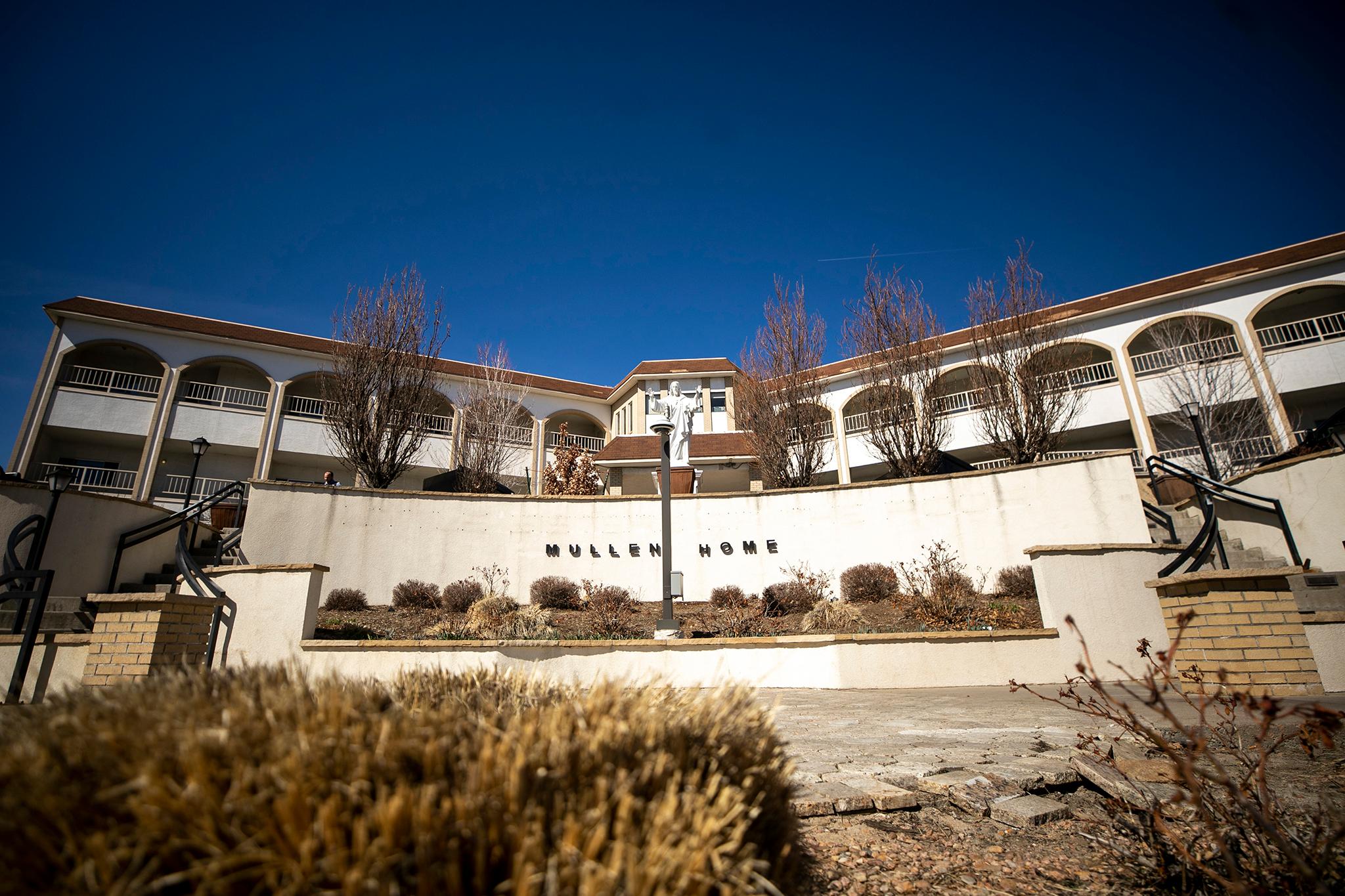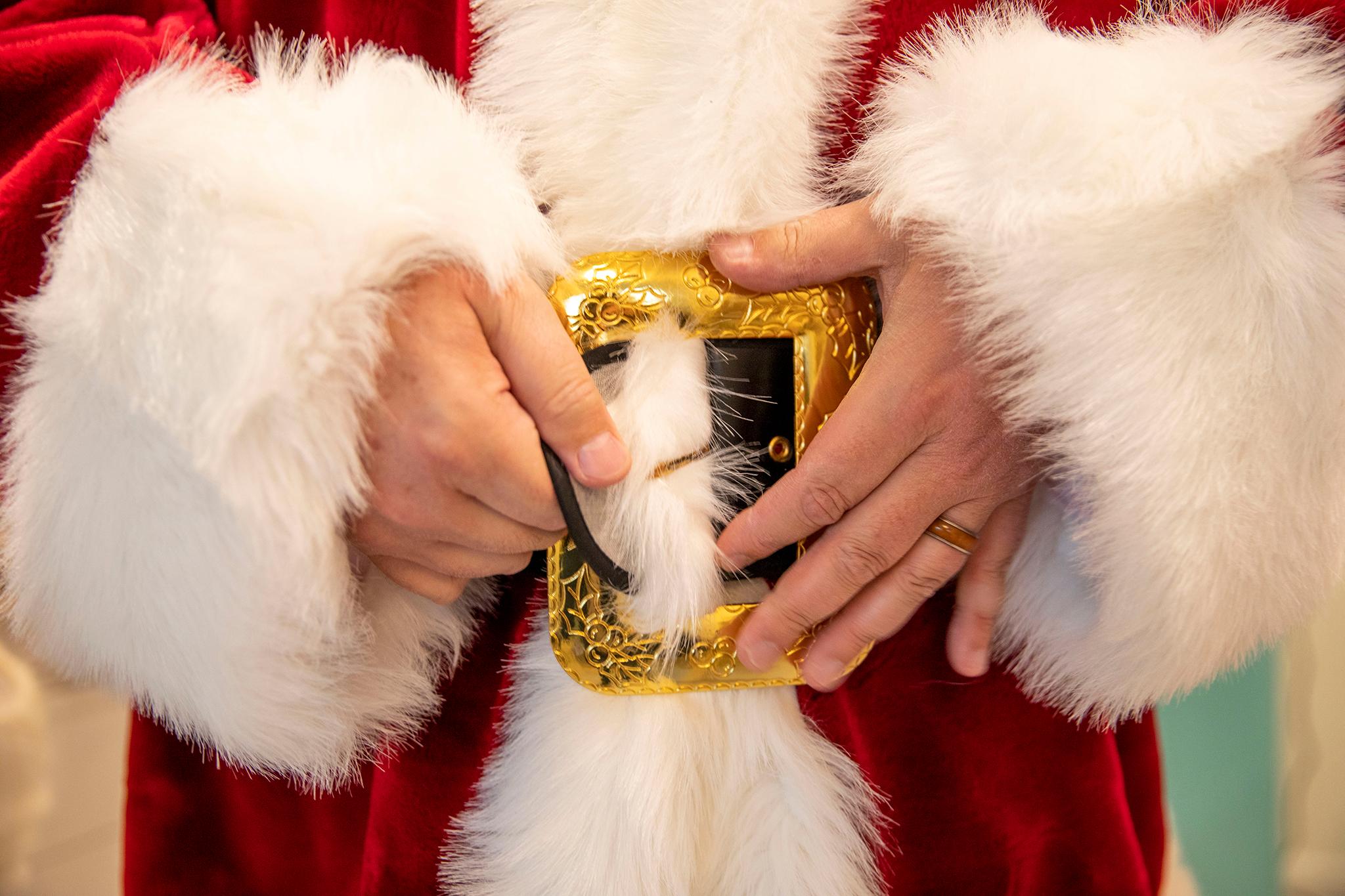
Amid cries of shame and calls for Secretary of State Wayne Williams to resign, Colorado's electors cast eight electoral college votes for Hillary Clinton -- and one that wasn't accepted. That ninth elector, Micheal Baca, was replaced by Celeste Landry, of Boulder, who did cast a vote for Clinton.
The votes marked the end of a drawn-out showdown between the state's Democratic electors and the state government. Colorado law requires that electors cast their ballots in accordance with the popular vote, and the electors wanted the freedom to vote otherwise in hopes of convincing some Republican electors to vote for someone other than Donald Trump.
The hours before the electoral college was due to convene at noon were spent in Denver District Court as attorney Jesse Witt argued that a new oath of office that included explicit language about voting of the person who got the most votes was not legal.
Polly Baca, a former state senator and one of the electors seeking the freedom to vote for another candidate, did not speak the words of the oath aloud when she was sworn in, but in the end, she still voted for Clinton. So did Robert Nemanich, a math teacher, who was the other elector to challenge the state in court.
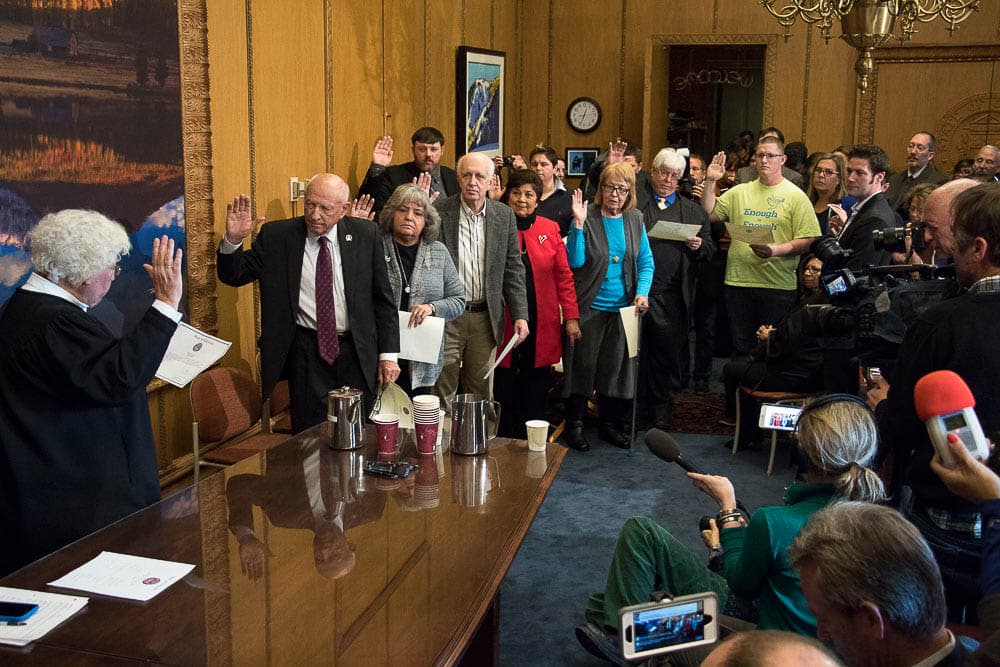
Micheal Baca -- no relation to Polly -- did as he had said he would do all along and did not vote for Clinton. His vote for president was not recorded in the record, but he yelled out that he voted for Ohio Gov. John Kasich.
This earned him a hero's treatment from the dozens of people crammed into the lobby of the capitol for the ceremony. The Secretary of State's Office said they have referred the matter to Attorney General Cynthia Coffman to determine if criminal charges are appropriate.
Nemanich said the threat of prosecution weighed on his decision.
"My vote was coerced and forced upon me by the will of the state and no other person," he said. "I would have faced perjury charges and election code charges if I had voted my conscience. That was an oppression by the state, forcing me to vote against my will. ... We will continue to fight to the Supreme Court of the United States."
As they waited outside the governor's office for the legal back and forth to be completed before the vote, those gathered in the capitol lifted their voices in song, patriotic songs like God Bless America and My Country 'Tis of Thee, and also protest songs like This Land is Your Land and We Shall Overcome, including the communist verses they skip over in school.
In the shadow of the steeple I saw my people,
By the relief office I seen my people;
As they stood there hungry, I stood there asking
Is this land made for you and me?
There was a solemn atmosphere of collective resistance to an inevitable outcome. But as the electors emerged and voted and Micheal Baca was removed, it gave way to cheers for the electors, boos for Williams and chaotic political commentary.
"This is an arcane system that the founders came to at the last minute because they were sick of the convention," one man yelled.
Some people yelled at Landry, the replacement elector, to not vote for Clinton either. She said she wasn't bothered by the strong opinions.
"I teach elementary school," she said. "I can handle this."
In her bag, she carried math exercises her fifth-grade students at University Hill Elementary School in Boulder had done related to the electoral college.
She said she had no qualms about voting for Clinton, but she wished more Republican electors had reconsidered.
"If I were a Republican elector, I don't know what I would have done," she said.
Today's vote comes on the heels of last-minute legal wrangling in the Democratic group's quest to vote for someone other than Democrat Hillary Clinton, who officially won 48.16 percent of Colorado's vote, easily defeating President-elect Donald Trump, who took 43.25 percent of the vote.
Colorado is one of many states with laws that appear to compel electors to vote for the candidate who won their state's vote, but electors Baca and Nemanich have challenged the constitutionality of that law in court. Most recently, Denver District Court Judge Elizabeth Starrs ruled that Colorado Secretary of State Wayne Williams had mere minutes to go through a legal process to change the electors' oath of office to bind them explicitly to vote for the person who won the most votes, rather than to “faithfully perform their duties.”
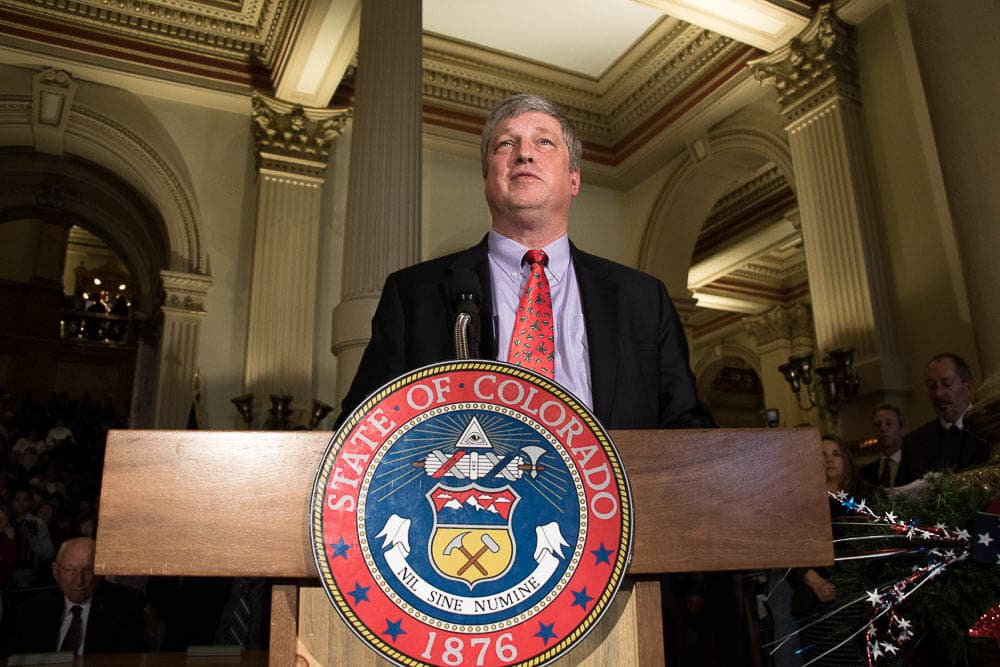
Williams announced that rule change at 11:48 a.m. It's available in full in PDF form. Here's the new oath:

Leading up to the event, Williams said that any electors who violate the oath could be charged with perjury and violations of the election code. Asked afterward if Micheal Baca would be charged, Williams said that is up to other people now.
Baca and Nemanich have been part of a national movement primarily of Democratic electors who want to vote for someone other than Clinton — perhaps even a Republican — to encourage Republican electors to not vote for Trump. The idea: If 37 Republican electors voted for someone other than Trump, he wouldn’t have 270 electoral votes, and the election would go to the U.S. House of Representatives.
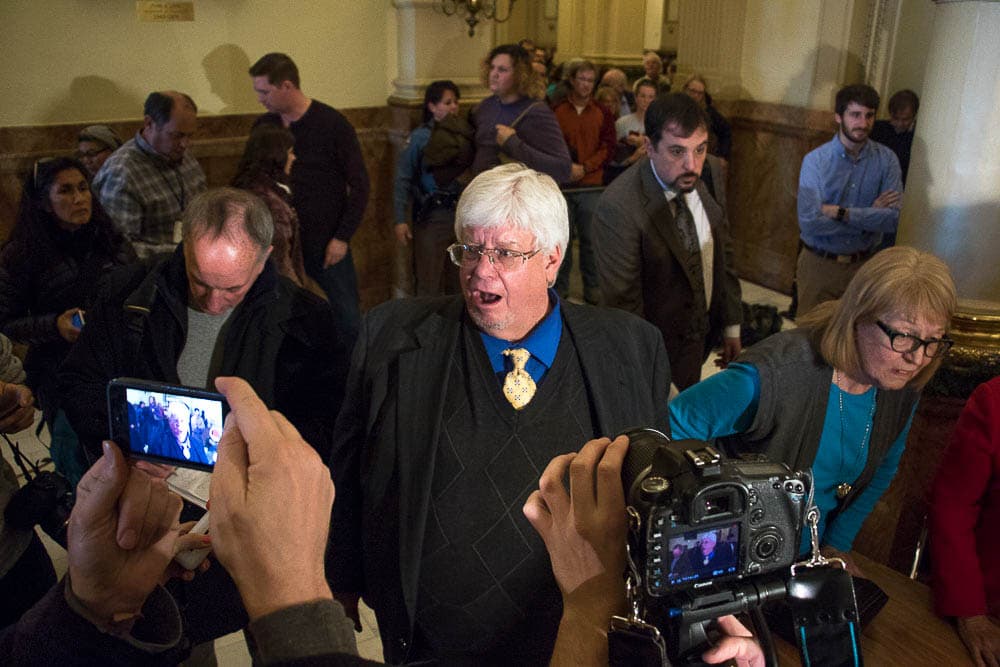
Of course, that was not to be. Just six electors nationwide voted for someone other than Clinton or Trump -- four Democrats and two Republicans. This represented, as Politico's Kyle Cheney noted, a "historic breach" between the electoral college and the candidates for whom they were supposed to vote, but it doesn't change the outcome. It also means the faithless electors movement hurt Clinton's tally more than it did Trump's, even as the ostensible purpose was to stop Trump.
Baca and Nemanich can still pursue their federal court challenge to Colorado's law -- and Witt, the attorney, indicated they would -- but any changes to laws that bind electors to the popular vote would be for future elections.
Chloe Aiello contributed reporting to this story.



